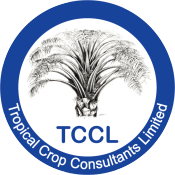Yield intensification is key for food supply, environment and economic development
18 Sep 2017
A letter in The Guardian from Anna Jones, journalist and Nuffield farming scholar, highlights the importance of professional yield improvement to tackle the nexus of economic development, food supply and environmental protection (The Guardian, 18/09/2017). Her focus is on cocoa in Africa but the issue is global and involves multiple crops and cropping systems.

A few points to consider:
Poor farmers do not prioritise the environment.
Yield intensification is not just about access to suitable planting materials and external inputs but, above all perhaps, about imparting knowledge to farmers and planters.
Traders, whether local or international, need to recognise that prosperous growers have greater capacity to implement the sustainable practices that their customers demand. By squeezing their grower-suppliers they ultimately defeat themselves.
Environmental lobbyists and NGO’s will be more effective when they recognise the important contribution of all properly tested technologies (fertilizers, pesticides, genetic modification) to the business of yield intensification with indirect benefits of land sparing for wilderness and eco functions.
Funding institutions and governments should pressure the academic community to focus less on endlessly nuancing and churning the same stories in journal publications and give more attention to testing and then providing farmers with a practical synthesis of their findings.
The farmer should occupy centre stage as the change agent for increased yields, economic development, and environmental management.
We, as agronomists, need to focus on distilling knowledge into key principles that can be applied in the field to drive yield intensification.

